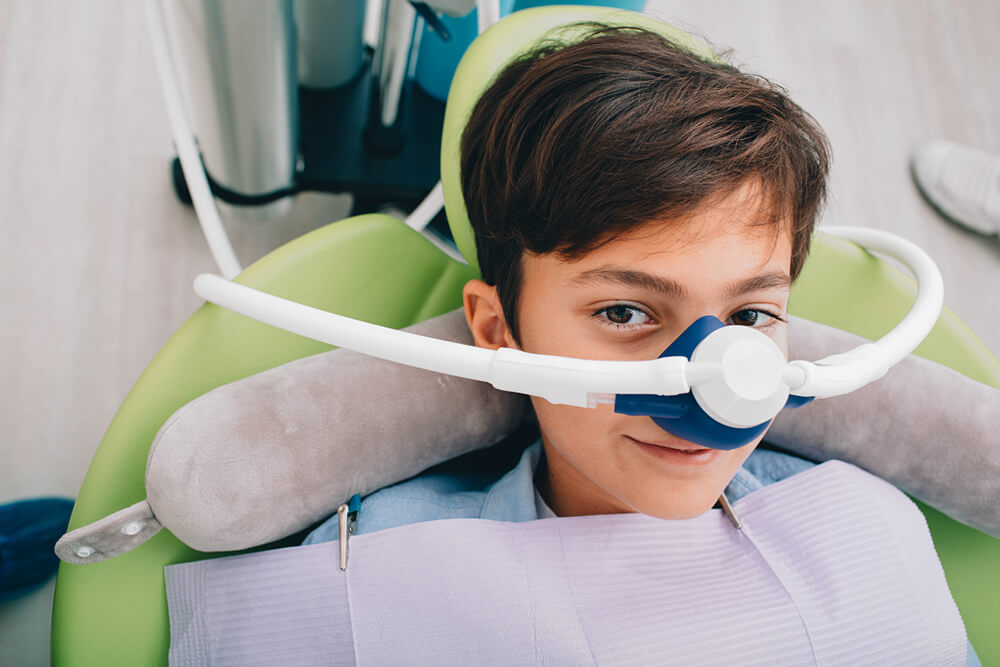For many parents, there is nothing more peaceful than watching their child sleep. However, the next time you find yourself watching your child sleep, you should pay attention to how they are breathing. This is because, believe it or not, the way your child breathes while sleeping can affect their oral health.
When your child sleeps, it is normal for them to breathe through their nose since this allows for increased oxygen absorption and immune system functioning due to the presence of nitric oxide in the nasal passages. Nitric oxide is used by the body to transport oxygen through the body, relax vascular smooth muscle, and dilate blood vessels. Additionally, it is antifungal, antiparasitic, antibacterial, and antiviral.
However, there are instances where you may notice your child breathing through their mouth while sleeping. In fact, mouth breathing is common when your child has a cold. Even if you don’t notice your child breathing through their mouth while sleeping, you may notice the following symptoms associated with mouth breathing:

- Snoring
- Daytime sleepiness
- Difficulty focusing at school
- Irritability
- Increased crying episodes at night
- Large tonsils
- Dry, cracked lips
- Complaints of dry mouth or frequent thirst
The occasional mouth breathing episode is not generally cause for concern, but if your child regularly breathes through their mouth they are at an increased risk of developing the following oral health problems:
Tooth Decay and Gum Disease
Unfortunately, breathing through the mouth causes the mouth to become dry. This is problematic to your child’s oral health, because saliva is the mouth’s natural defense against the bacteria that cause tooth decay and gum disease. When saliva levels are decreased, bacterial levels in the mouth can rise and increase the risk of developing tooth decay and gum disease.
Gummy Smiles
Commonly known as “gummy smiles”, an overgrowth of the upper gums can occur as a result of mouth breathing. Not only do gummy smiles make the teeth appear smaller than normal since they are hidden below excess gum tissue, but they can also allow for bacteria to become trapped underneath this excess tissue. When bacteria become trapped under the gum tissue, this drastically increases the risk of tooth decay and gum disease.
Improper Facial Development
The most serious effect of frequent mouth breathing is improper facial development. As a result of mouth breathing, children tend to develop a longer face, droopier eyes, less prominent cheekbones, flatter facial features, reduced muscle tone in the lower half of their face, and a narrow palate. Mouth breathing has also been associated with causing an overbite with protruding teeth that will often require orthodontic treatment for correction.
At this point, you are probably wondering what causes mouth breathing and how to stop it. Some possible causes of mouth breathing are a restricted lingual frenum (tongue tie), thumb or finger sucking, or structural problems with their airway. Because there are different causes of mouth breathing, it is important to identify what is causing your child to breathe through their mouth in order to find the right treatment. Luckily, your child’s pediatrician and pediatric dentist can work with you to determine both the cause and the best course of action to stop your child from mouth breathing.






